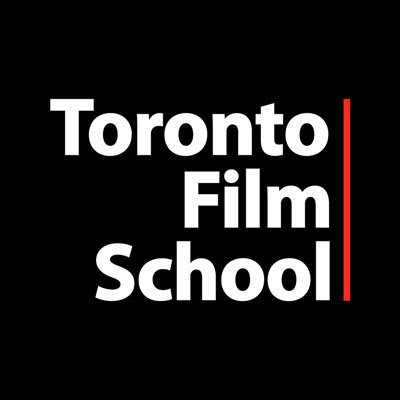UK VS CANADA: TORONTO FILM SCHOOL
Words: Tomo kembery
Over the past 6 months, I’ve been covering some pretty cool short courses in the UK at some of the best film schools our great country has to offer. Although, I feel that the UK lacks in modern film making standards, as well as providing its students with industry knowledge and how to progress your career further. Most of the courses offered in the UK tend to be a case of “stick and camera in your hand, do some editing and here’s a film”
Things like VFX, green screen and top end equipment are all missing from today’s UK film educations, and once you have finished a course there is no support on where to go next. The UK does not have that big of a film industry, in fact it’s so small that it’s very difficult to get into; let along make any money consistently and build your career.
With our country’s film industry being so tiny, it’s natural to move into TV in the UK and most likely end up working for the BBC (or another large channel) that control our screens, yet these jobs are still competitive in a tough industry to break.
So what about studying abroad? The obvious choice would be to go and study in LA right? After all, that’s where the industry is if you want to become the next Steven Spielberg! But what about Canada?? You’ve probably never even thought about it but the fact of the matter is Canada (know as Hollywood North) hosts the 2nd largest film network to LA; most large studios have bases in Canada where regular productions are shot all the time, as well as a healthy TV industry. The scene truly is bursting at the seams!
Recently I have been lucky enough to travel to Toronto, and while in town i visited “Toronto Film School” where I was given the opportunity to interview some of the course leaders and students and take part in some classes.
So what does Canada have to offer that the UK doesn’t? And why would a British student want to study there?
Let’s start
Toronto was recently voted one of the most desirable cities to live in; it’s big, has plenty to do, has a thriving financial scene and some amazing places to eat and drink. On top of this, the film industry is thriving with huge productions from both the film industry and advertising industry being shot there. In fact, 85% of Canada’s advertising agencies reside in Toronto so it’s the place to be if working in advertising is your dream.
You’ll find Toronto Film School right in the heart of downtown Toronto, situated on the 7th floor of a large office and cinema complex. The school also has another campus (used mainly for actors and fashion) a few blocks away.
On entering the school, I was met by Darcy Love, one of the school’s final year students originally from Australia. Darcy found a love of Directing while studying at the school and once his course has finished, he hopes to work in the TV industry between his two homes. We said hello and he took me to meet Erin (from the school relations team) who along with Darcy, would be giving me a tour of the school and joining me in sitting in on a few classes.
The school keeps things simple and tight and offers 2 courses, either acting or film production. I would be covering the film production course which covers all aspects of film making from start to finish in an 18 month period.
“In term 1 we cover the basics of film making, in terms 2 and 3 we cover editing and in term 4 we cover VFX. We do a number of mini projects over the terms including 1 commercial, 1 music video, 1 public sector, 1 short film which is our main project and for this we join up with the acting majors” Darcy informs me.
One of the main aspects that immediately struck me at the start of the tour was the space the school has; it’s very small indeed. It has to be the smallest school I’ve visited so far in my time researching film schools. And with 4 intakes per year of up to 60 students, I wondered how this school could function. As I walked along the one hall, the school felt a lot like a mental asylum, dingy walls that looked like they hadn’t been painted in years, with random people walking the corridors talking to themselves (the actors rehearsing, I later discovered), students everywhere crammed into class rooms and a tiny common room. This was organised chaos at its best.
It has to be said that Toronto’s facilities are as basic as they come. They have 2 computer/ editing rooms all with Mac computers, an actor’s rehearsal room which is also used for green screen work and a sound editing room which has a make-shift sound booth made from wood, polyboards, curtains and a cupboard (it may work totally fine but just seems a little unprofessional for todays standard’s and the prices of the course per student). On top of this, they have 2 reasonable-sized sound stages for productions but they are cluttered with stands, sets and equipment due to the lack of storage facilities. Personally, if I were a student here I would find it very frustrating having to spend time moving everything i don’t want in my shots out of the way before I can shoot.
Equipment-wise, you’ll find pretty much everything you need for a film shoot in-house and if it’s not available, the school also has a relationship with a rental company for anything extra. Camera-wise, you’ll be shooting firstly on a DSLR which I thought was pretty cool as most people would have one, then a Panasonic and finally an Arri Alexa or Alexa mini which are both a good choice of prime lenses. So equipment wise you are set and its some of the best kit in the industry.
But state of the art facilities, these are not and I wondered why would people come here other then the price of the course being a little less it its competitors in Canada.
As the day went on, I sat in on some classes (acting and cinematography) which to my surprise only consisted of small numbers of students. It was clear that although the facilities were basic and there were a high number of students on campus, precision planning goes into who is doing what and where on the courses to avoid utter madness.
Erin tells me over lunch, “We’re a small school with the main focus being the students creating content and film. You have to have passion to make film as our course is fast and intense. All our teachers are industry professionals who are all currently working in the industry at a high level, so getting to know them and having that network around you will help progress your career quickly.” Darcy adds, “ 80% of the people on my course, like me, have finished it and are already working in the industry. Me and some of my classmates are already working on a couple of shows that one of our teachers is going to help fund by introducing us to a producer he knows.”
What I did find great at Toronto Film School is that are you able to pay by terms if you decided the course it not for you or want to jump into the industry quicker than expected. Students also study the main aspects of the business of film including funding, distribution, marketing etc….all of these aspects are so important and aren’t covered in the UK. And on top of these, the school will offer career advice and look after you for up to a year once you finish your course.
What was quite clear was the passion Erin and Darcy had for the school. They truly did believe that Toronto was a great place to learn, and although this was not a state of the art facility it did not matter! It was about the film making, the students and the content to come out of it and this was about to become apparent as to end the day, I would be viewing some of the final year student’s films, including Darcy’s.
As I entered one of the computer rooms for the viewing, I was feeling optimistic for the students. I was introduced to the teacher who gave me a quick break down on where the class was at with their final films. One by one, each student (there were around 6 in the class) got up and introduced their film before the showing. Darcy was the first to go.
“I managed to get the rights to a Steven King story called ‘The Man Who Loves Flowers’, which is about a mentally unstable man who killed his girlfriend and is now dating other women so he can kill them too. The picture is locked but we still have some colour edits as well as SFX to add.”
As I sat there and watched the 6 short films created by students who, only less than 18 months ago, had no experience whatsoever in film (some of them had never touched a camera) a sense of achievement and clarity came over me. I was particularly impressed with Darcy’s film as I had got to know him well in our time, along with Acid trip is: Back To Reality by director Xiaoyu Chen which showed true imagination and lastly Ghost phone: Don't Turn Around by Director Cayley Hanson which shows great use of after effects.
It’s was clear to me that your don’t need huge sound stages, you don’t need a state-of-the-art sound booth, you don’t need large dollies and cranes to make great films. All you need is a bunch of people in a space who have a passion for film making and under the guidance of some professions, will achieve anything they put their minds to in a great city that offer so much for a film maker.
So if your looking for a great course then head to Toronto, it may be a little rough around the edges but your going to get good results and progress your career as a film maker.
Score 7 out of 10





